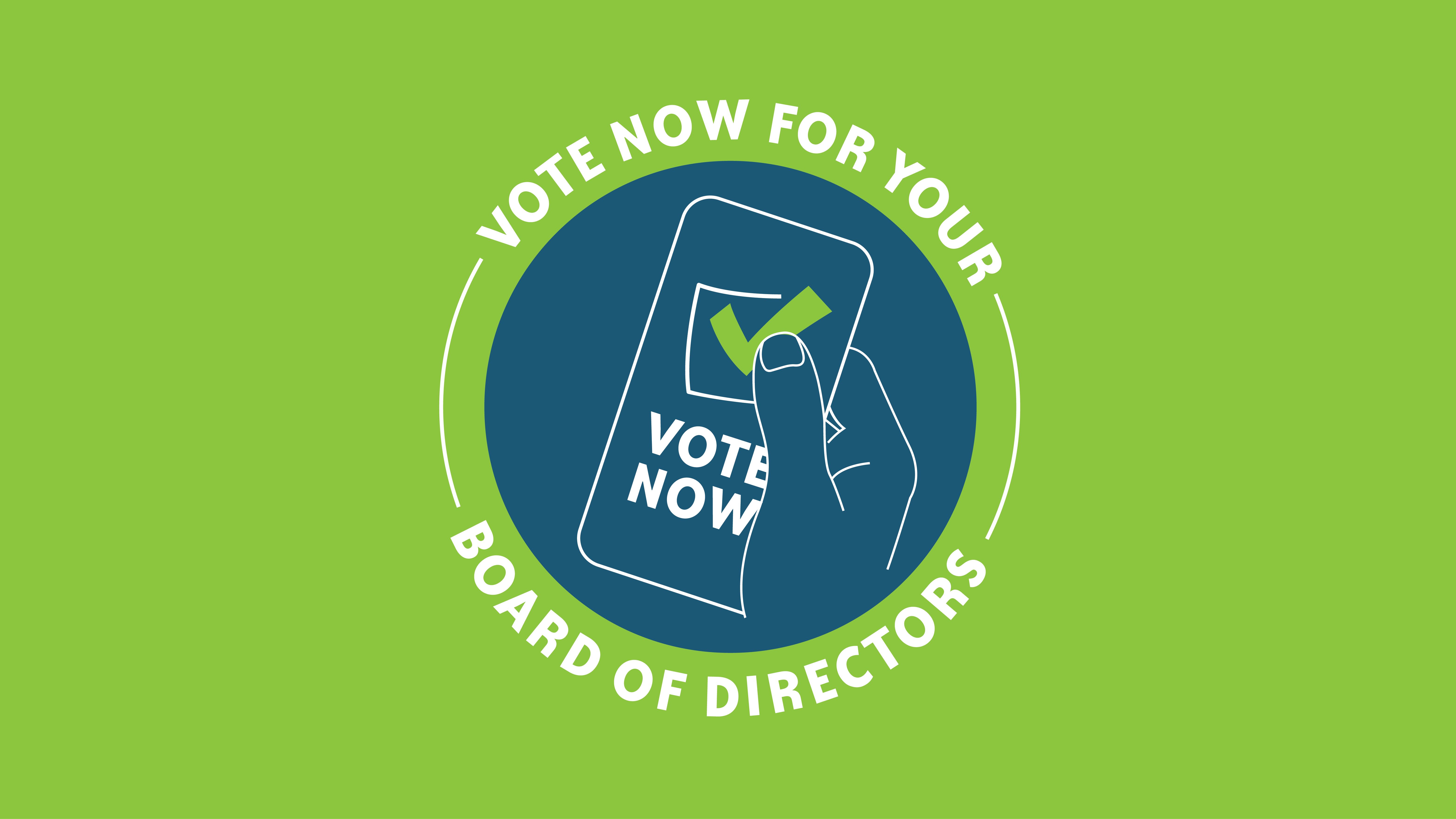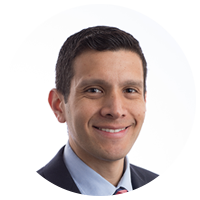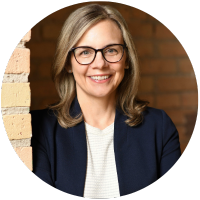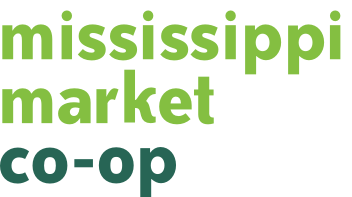
Thank you to the member-owners who participated in the 2023 Board of Directors Election. The results are as follows.
Board members elected to three-year terms:
Daniel Ramos Haaz (Incumbent)
Noel Nix (Incumbent)
Roderick McCulloch
Tamara Downs Schwei (Incumbent)
Board members elected to two-year terms:
Devona Wells (Incumbent)
Taylor Mitsch (Incumbent)
Member-owners approved the proposed change to the articles and bylaws.
Board Candidates
Current board members reviewed new candidate qualifications and experiences, resulting in a final slate of six candidates on this year’s election ballot. The board of directors evaluated applicants based on their varying levels of experience and demonstrated interests in the following areas: Diversity & Inclusivity, Board Governance, Leadership or Supervisory Experience, Financial Experience, Creativity and Imaginative Thinking, Long-term and Strategic Planning.
Proposed Change to the Articles and Bylaws
Articles and bylaws provide the legal basis for the co-op’s existence; they identify how the co-op is structured and how that business is governed and managed. Changes to the articles and bylaws require a vote by co-op member-owners. The Mississippi Market Board of Directors is proposing a few changes to the bylaws related to term limits to: increase the term limit, clarify the rules around partial terms, and address ambiguity in the wording.
The Board of Directors proposes increasing the current term limit of two (2) consecutive terms to three (3) consecutive terms to allow for continuity on the board, which is standard for co-ops that utilize term limits. Board continuity is crucial for co-op health; a knowledgeable board can better serve the member-owners and the operations team. The board is also proposing a change to how we define partial terms. When a partial term needs to be filled, new members are either elected to a partial term or appointed by the board until the next election. The board proposes changing the threshold for a partial term to count towards term limits to be raised from 12 months to 13 months or more to ensure that members elected to a 1-year term are eligible for the maximum number of full consecutive terms.
Current:
Section 4. Terms of Office. The term of office of the directors shall be three (3) years and until their respective successors are elected and qualified. The terms of office of the directors shall be staggered to the extent possible, so that approximately one-third (1/3) of the directors shall be elected each year. Directors shall be eligible to serve two (2) consecutive terms. A director elected or appointed to serve a portion of a term shall count that as one term if the portion of the term is greater than one (1) year. Portions of terms less than one (1) year shall not be counted as a term for purposes of this term limit restriction. A director who has served two terms, or one term and a portion of another term greater than one year, shall be eligible for appointment or to run for the Board of Directors again after an absence from the Board of at least one year.
Proposed revision:
Section 4. Terms of Office. A director’s term of office (“term”) shall be three (3) years and until a respective successor is elected and qualified. Terms should be staggered to the extent possible so that approximately one-third (1/3) of the directors should be elected each year. Directors are eligible to serve three (3) consecutive terms. A partial term shall count as one term if the partial term is greater than or equal to thirteen (13) months. Partial terms less than thirteen (13) months shall not be counted as a term for purposes of this term limit restriction. A director who has consecutively served three terms, or two terms and a portion of another term greater than thirteen months shall be eligible for appointment or to run for the Board of Directors again after an absence from the Board of at least one year.

Daniel Ramos Haaz (Incumbent)
CLICK TO READ FULL CANDIDATE APPLICATION
1. Why are you interested in running for this board?
Food co-ops are special to me because they strongly align with my values. They contribute to local economies, are democratically owned and controlled by their members, and serve as pillars of their diverse communities. I ran for the board in 2020 because it allowed me to meet fellow owners and engage with the community during the pandemic. I was involved in the unwinding of the East 7th new market tax credit and have reviewed the co-op’s quarterly and annual financial results. As a board member of Mississippi Market, I aim to continue leveraging my past experiences as a board member and as an owner of the co-op. My primary objective is to contribute to the co-op’s objectives while making well-informed and financially prudent decisions.
2. Briefly summarize what professional, leadership, and/or volunteer experience uniquely qualifies you to serve on the board.
I’ve been involved with food co-ops for nearly 12 years through my professional role as the Controller for National Co-op Grocers, a nationwide association of food co-ops. My professional work has provided a thorough understanding of the industry and its financial operations. I have also created and reviewed operating budgets, and financial reviews for other food co-ops. Before moving to St. Paul, I served on the Willy Street Co-op board in Madison, Wisconsin. With my financial background and expertise, I gravitate toward finance and audit committees while working on cooperative boards. I also volunteer on the Cooperative Development Services Board, which is a non-profit focused on supporting the growth of all cooperative businesses.
3. Please describe your experience in one or more of these areas: board governance, long-term and strategic planning, leadership or supervisory experience, diversity and inclusivity, creativity and imaginative thinking, and financial experience.
During my time on both the Mississippi Market board and the WSC board, I have been part of several strategic planning meetings, which means that I have used policy governance for about 10 years. I even have my own copy of the John Carver book “Boards that Make a Difference”. This policy governance framework has been useful for boards making decisions around long-term planning, expansions, and remodels. I have been part of executive committees and chaired a few committees for both of these boards. Some of my experience has (understandably) been within Finance and Audit board committees, which includes managing board policy requirements around the co-op’s financial activities and operations to create agendas and discussion topics. Finally, I’ve been in accounting and finance for about 20 years and I currently manage a small team of two staff members at National Co-op Grocers.
4. Please describe how you would contribute to the diversity, equity, and inclusivity of the board.
I bring a different perspective to the board, not only from being a Mexican-born US citizen and an LGBTQIA+ professional. I have also worked with food co-ops and food co-op boards from different locations and sizes, which has provided me with a different perspective I can bring to Mississippi Market’s to evaluate opportunities and challenges and find equitable solutions.
5. In your opinion, what is the role of the co-op in the community?
The last time I ran for the board I said “The co-op exists to nurture its surrounding community. It should reflect and enhance the diversity of its owners in all aspects, from its culture to its sales mix”. I still very much align with this statement.
6. What is your vision for Mississippi Market’s future?
It is a broader conversation when I say that I want Mississippi Market to thrive in this challenging environment. I envision it to be a cornerstone of its diverse communities for each of its stores, where people have access to fresh/local foods and staff is inspired and empowered to grow with the co-op.
7. The co-op is currently facing many new challenges due to the pandemic and an ever-increasingly competitive grocery industry. What opportunities do you see for innovation and growth for the co-op to overcome these and other challenges?
Competition has always been hard, and it rarely gets easier. But food co-ops can make a stronger connection and enhance their relationships with the community. I enjoy going to a store and having the feeling that I belong. I also like finding local products I can’t find in other big chain stores.
Having a clear strategy and communication plan is pivotal for the co-op to reach its owners. We need to find a better balance in connecting with the different organizations that share the co-op’s values, be it more cooperation among cooperatives (co-op principle #6) or engaging with more local community organizations (concern for community, principle #7).
8. Tell us about your favorite co-op food, and how you like to enjoy or share it.
I recently had a Cubano sandwich and it’s by far my favorite from the deli. Also, growing up in Mexico, we always have “La Perla” tortillas on hand. I love that they are local and can assure you they taste fresher than most store-bought tortillas.

Devona Wells (Incumbent)
CLICK TO READ FULL CANDIDATE APPLICATION
1. Why are you interested in running for this board?
My family and I have been enthusiastic customers of the co-op for many years. As a board member, I am particularly passionate about helping the co-op continue to be a place that fosters a sense of community and continues to offer local, healthy food. It would be an honor to continue to help guide an organization that occupies such an important space in the community. I also believe that my interests and skills would continue to make meaningful contributions, marrying my deep interest in food and sustainability with my board member experience and skills as a lawyer—communication, critical thinking, and leadership.
2. Briefly summarize what professional, leadership, and/or volunteer experience uniquely qualifies you to serve on the board.
I have served on the board for nearly two years, including as Vice President and a member of the Executive Committee. I work as an attorney for the state’s largest county, where I am general counsel to the Hennepin County Public Health Dept. and advise on a wide range of issues. I also actively litigate complex cases. Before becoming an attorney, I was a newspaper journalist for more than 10 years, which gives me an ability to understand how decisions or messages may be broadly perceived and how to handle difficult situations that might draw media attention. If re-elected, my leadership, board service, and professional experience would enable me to continue to bring strong communication, critical thinking, and strategic skills to the board.
3. Please describe your experience in one or more of these areas: board governance, long-term and strategic planning, leadership or supervisory experience, diversity and inclusivity, creativity and imaginative thinking, and financial experience.
I have served for nearly two years on the board, which gives me unique insight and experience in the area of board governance. I have also chaired the board’s Development Committee, which plans the yearly retreats and ensures the board receives a wide range of education throughout the year. As a member of the Executive Committee, I contribute to planning for upcoming meetings and strategize on big picture goals for the board. This hands-on experience would serve the board and the co-op well if I am re-elected. In my role at Hennepin County, I was an integral part of a legal team that advised on strategic planning related to the county’s COVID-19 response. I advised county leadership amid a dynamic and life-threatening situation on how to keep employees and residents of the county safe during the pandemic. This required agility during a rapidly evolving situation, as well as critical thinking and team building—the same set of skills I bring to my service on the board. In addition, I have experience in fostering diversity, equity, and inclusion on multiple levels. I have engaged in multiple trainings on utilizing equity and inclusion tools. I have also taken part in in-depth training that emphasized the importance of dialogue (not debate) in creating open, constructive discussions. Diversity, equity, and inclusion is a critical part of my day-to-day work, as well, in ensuring that new and ongoing efforts take into account potential impacts to diverse communities.
4. Please describe how you would contribute to the diversity, equity, and inclusivity of the board.
Diversity, equity, and inclusion has been a focus of my work on the board, including planning an annual retreat this year that centered on diversity, equity, and inclusion issues. As a board member, I am always thinking about whether the board’s work is consistent with diversity, equity, and inclusion goals. Additionally, I work to be aware of and expand my cultural competence by understanding that my perspective can come with limitations and being
open-minded and empathetic.
5. In your opinion, what is the role of the co-op in the community?
The role of the co-op is to serve the community’s needs as those needs change and evolve. One of the co-op’s key roles is to make healthy and sustainable food available to all people. There are many strategies to reach this goal. First, create a welcoming and inclusive experience for people who identify as BIPOC. This includes who is working in the stores and how they treat shoppers, in addition to examining what is stocked in the store and whether foods from non-majority groups are as inclusive as they can be. Second, continue to make the case for the value of coops from a standpoint of nutrition and health, but also community-building.
6. What is your vision for Mississippi Market’s future?
My vision for Mississippi Market is for it to be a leader in promoting local and sustainable food practices, while also being an equitable and inclusive community partner. The co-op’s role in supporting and providing education on sustainable food practices is critical, as climate change alters growing patterns and disrupts supply chains. The coop can be a leader in moving people towards food that is healthy and local while also protective of the environment. Additionally, the co-op can continue to grow in its role as a community organization that confronts wrongs in St. Paul—namely, racism and its many links to gaps in employment, health, and well-being for people who identify as BIPOC.
7. The co-op is currently facing many new challenges due to the pandemic and an ever-increasingly competitive grocery industry. What opportunities do you see for innovation and growth for the co-op to overcome these and other challenges?
Emphasizing that every dollar spent at Mississippi Market is a dollar that stays local provides an opportunity to grow the co-op’s membership and customer base. My family tries to make thoughtful decisions about what we buy and where we buy it, like a lot of shoppers. Part of that involves thinking about where our money goes after we spend it. Mississippi Market is a major local employer, champion of local food producers, and dedicated supporter of local community partners. Money spent here stays here, which is a stark contrast to the major national grocers Mississippi Market competes with. I believe emphasizing the co-op’s deep local commitment would appeal to a lot of potential customers who value a local, thriving economy.
8. Tell us about your favorite co-op food, and how you like to enjoy or share it.
My favorite co-op food is the organic lacinato kale, I use it to make a kale salad that is a hit at home and everywhere I take it. The salad has a ”Caesar” dressing that substitutes Worcestershire sauce for anchovies, topped with panko bread crumbs that I saute with olive oil and garlic.

Noel Nix (Incumbent)
CLICK TO READ FULL CANDIDATE APPLICATION
1. Why are you interested in running for this board?
My partner and I have been regular customers of Mississippi Market since we moved to Saint Paul over 10 years ago. We have a strong interest in many of the facets of Mississippi Market’s business model: locally sourced foods, healthy eating, sustainable agriculture, and community-oriented approaches to business. As a board member, I have had the opportunity to work with our other board leaders and our general manager to begin charting a course for our cooperative as we move past the pandemic. It’s an exciting time for the cooperative movement in Saint Paul and I’d like to continue to help lead.
2. Briefly summarize what professional, leadership, and/or volunteer experience uniquely qualifies you to serve on the board.
My career has spanned a number of roles in business, local government, and community development. I hold a BS in Marketing and Master’s in Urban and Regional Planning. I have previously worked in the packaged foods industry, spending a year working in promotion marketing at General Mills. Since then, I have dedicated my career to community and economic development, holding positions in residential property management, policy advocacy, and local government leadership. I have served on boards for a number of different organizations, serving in multiple roles including co-chair. Currently, I work in the Saint Paul Mayor’s Office where, among other activities, I help advise the mayor on community-informed economics and infrastructure.
3. Please describe your experience in one or more of these areas: board governance, long-term and strategic planning, leadership or supervisory experience, diversity and inclusivity, creativity and imaginative thinking, and financial experience.
In my work at the City of Saint Paul, I’ve participated in and led strategic planning sessions regarding various policy issues. I have also participated in strategic planning retreats for various nonprofit and political organizations. I work with the City of Saint Paul’s Chief Equity Officer and other senior leadership on efforts to advance racial equity through policies and procedures, as well as bring diverse and underrepresented voices into decision-making processes. I work closely with staff on shaping and advancing the City of Saint Paul’s economic development and business support strategies. In my previous work at General Mills, I had the opportunity to work on planning and executing grocery retail promotion strategy and tactics.
4. Please describe how you would contribute to the diversity, equity, and inclusivity of the board.
As an African-American male, I come from a demographic that is negatively impacted by the numerous disparities within our community – particularly those in the areas of economic opportunity and health. As a board member, I have sought to openly and directly share my perspective and contribute to the critical conversations our board has been having around ensuring our cooperative is an active force for good in addressing these disparities and creating opportunities broadly for our community.
5. In your opinion, what is the role of the co-op in the community?
Cooperatives like Mississippi Market are a vehicle for community members to come together to provide greater access to fresh, healthy, sustainably grown food. While there is increasing competition from other retailers, our coop still plays an important role in bringing our community together around food. Whether it’s offering regionally grown produce, hard-to-find specialty products, or offering classes on growing and preparing food, the co-op is a critical part of our community’s healthy living ecosystem. As a co-op business, Mississippi Market also plays an important role in creating opportunities for community participation and community leadership in guiding and supporting the business’s growth.
6. What is your vision for Mississippi Market’s future?
I see Mississippi Market continuing to be a leader in partnering with local community members to bring fresh local food and other products in ways that create better access and economic opportunities for growers and makers. I also see Mississippi Market finding new, cost-effective ways to bring community members together around understanding, preparing, growing, and celebrating a healthy local economy in ways that increase customer loyalty and bring in new customers and members.
7. The co-op is currently facing many new challenges due to the pandemic and an ever-increasingly competitive grocery industry. What opportunities do you see for innovation and growth for the co-op to overcome these and other challenges?
Looking ahead, it will be critical for Mississippi Market to reinforce its core comparative advantage as a community-owned and community-focused business. While other retailers may offer similar products, as a co-op Mississippi Market has the opportunity to find new ways to bring the communities our locations serve together around healthy food and healthy living. We should explore ways to address market failures and opportunities in areas such as cannabis or in leveraging our buying power to address food deserts through corner store models that can compete with shops that sell unhealthy options in poor store conditions.
8. Tell us about your favorite co-op food, and how you like to enjoy or share it.
I am a big fan of the soups. They are fresh and taste as good as homemade. I often serve these with meals at home for a tasty addition.

Roderick McCulloch
CLICK TO READ FULL CANDIDATE APPLICATION
1. Why are you interested in running for this board?
Mississippi Market is my local co-op grocer and I believe in the power of cooperatives to strengthen community. I have lived in the Selby/Dale neighborhood for over 15 years and would like to provide my time and energy towards ensuring that the Mississippi Market continues to be a valuable resource and sustainable business for a long, long time.
2. Briefly summarize what professional, leadership, and/or volunteer experience uniquely qualifies you to serve on the board.
I have been a supporter and patron of co-ops my entire adult life, and have spent the past decade working within cooperatives. I spent nine years working at Seward Community Co-op in just about every position within the Deli/Prepared Foods department, and then as the Fresh Food Merchandising Coordinator. During my time at Seward, I also served a one-year term on the Board. I have a Master’s Degree from Saint Mary’s University in Management of Co-ops and Credit Unions. This past year I left Seward and took a position at Shared Capital Cooperative, a financial cooperative that lends to other co-ops.
3. Please describe your experience in one or more of these areas: board governance, long-term and strategic planning, leadership or supervisory experience, diversity and inclusivity, creativity and imaginative thinking, and financial experience.
Board Governance – I served one year on the Board of Seward Community Co-op and am familiar with the policy governance model.
Long-Term and Strategic Planning – as a part of the Merchandising Team at Seward, my role was to assess patterns in sales data and strategize ways to improve departmental performance with regard to sales and margin.
Leadership – Throughout my career I have found myself in leadership positions repeatedly. As the Deli Department Manager at Seward I was supervising approximately 30 individuals.
Diversity and Inclusivity – A strong desire to see racial justice in action, I was a member of the Supply Chain Diversity Team at Seward, a group whose efforts were to increase the diversity of Seward’s sourcing practices.
Creativity – I deeply enjoy exploring new ideas, flavors, music and experiences. Throughout my career, I have often strived to find unique ways to address challenges and build systems that supported our team in achieving our objective.
Financial Experience – 10+ years of financial review and decision-making.
4. Please describe how you would contribute to the diversity, equity, and inclusivity of the board.
As a white, cis-gender, hetero, man in my 40’s, I do not bring any diversity to the Board. I am, however, passionate about and would be committed to prioritizing diversity, equity, inclusion and justice in my role as a Board member, were I to be elected. On an ongoing basis, I work to educate myself with the intention of being able to process and respond to the world with anti-racist, feminist, and queer-supportive actions.
5. In your opinion, what is the role of the co-op in the community?
Primarily, the co-op is meant to provide access to high-quality food with options that meet the wide range of dietary needs within the community. Additionally, it serves to create a third space, a place where folk can work, shop, and interact with one another. Ultimately, I believe that it can also function to engage within the community and seek to support other organizations/businesses to improve the quality of life of all of our neighbors.
6. What is your vision for Mississippi Market’s future?
Mississippi Market will be a neighborhood fixture, involved in the community, providing respectable employment opportunities, supporting the regional food ecosystem, and advocating for improved agriculture regulation.
7. The co-op is currently facing many new challenges due to the pandemic and an ever-increasingly competitive grocery industry. What opportunities do you see for innovation and growth for the co-op to overcome these and other challenges?
First and foremost, I think it is of paramount importance that the Mississippi Market ensure that operations are dialed in to ensure profitability. Perhaps, that is already the case, if so, then I think the next goal should be about community engagement in order to deeply understand what the neighborhoods that Mississippi Market is a part of are in need of or desiring from the co-op. I would need to learn more to better understand where there are conflicting demands in order to best address the question of innovation.
8. Tell us about your favorite co-op food, and how you like to enjoy or share it.
I love the bacon and sausage breakfast burrito! I will find any excuse to come into the co-op just to grab one of those. For holidays or get-togethers, I like to put together a cheese board and Mississippi Market has everything I need to do so, amazing local cheeses.

Tamara Downs Schwei (Incumbent)
CLICK TO READ FULL CANDIDATE APPLICATION
1. Why are you interested in running for this board?
Mississippi Market is a critical part of the local food system and the St. Paul community, for eaters and producers, and I would like to help ensure that it continues to thrive. I offer an energetic commitment to the co-op, food systems knowledge and useful skills and experience. I lived in the Selby-Dale neighborhood when the store opened and became a member at that point. I was excited to have a wonderful grocery store open down the street. While Executive Director of Urban Roots on the East Side, I was honored to participate in the committee and efforts that resulted in the East Seventh Street location. I have been impressed with the co-op, its leadership and mgmt & have enjoyed the people I’ve worked with in my first term on the co-op.
2. Briefly summarize what professional, leadership, and/or volunteer experience uniquely qualifies you to serve on the board.
I bring nearly 20 yrs prof. experience with food systems, board leadership and public and non-profit leadership and management. I led the Homegrown Minneapolis initiative for eight years until 2022, helping the community grow, process, distribute, eat and compost more healthy, sustainable and local food. Through this role I co-founded the Farmers Markets of Minneapolis Collaborative. I was Executive Director of Urban Roots in St. Paul for seven years, supporting youth development through food and conservation projects, including CSA, markets and partnership with Mississippi Market. I’ve been a member of the Slow Food and WomenWinning Boards of Directors. I shop all of the local food co-ops and am member of a farm investment club.
3. Please describe your experience in one or more of these areas: board governance, long-term and strategic planning, leadership or supervisory experience, diversity and inclusivity, creativity and imaginative thinking, and financial experience.
Board governance: Experience in two boards (Slow Food and WomenWinning) and experience working with board as Executive Director of Urban Roots as well as with Food Council as Homegrown Minneapolis Coordinator.
Community engagement/connections: Decades of experience in community outreach and engagement, collaboration, coalition building and policy and project development.
Creativity and entrepreneurship: Nurtured food entrepreneurship at Homegrown Minneapolis and Urban Roots.
Diversity and inclusivity: Embedded in my approach to work, collaboration and projects; worked with Food Council to develop definition of food justice
for City and food action plan at City of Minneapolis; led hunger relief & urban ag in partnership with cultural communities.
Financial experience: Non-profit financial leadership as ED of Urban Roots for seven years and in fundraising and grant management for hunger relief at City of Minneapolis.
Long-term and strategic planning: Strategic planning leadership experience at Slow Food, Homegrown Minneapolis,Urban Roots.
4. Please describe how you would contribute to the diversity, equity, and inclusivity of the board.
I’ve worked throughout my career to be a collaborator and ally with BIPOC and GLBTQ+ community members & make a place at the table 4 all. I have a diverse family and we experienced economic challenges. One of my parents relied for a bit on food stamps. My first teen job was selling corn at my neighbors’ farm stand. I paid my way through college with numerous food service jobs. During the pandemic, I collaborated with Latinx residents to offer a weekly free food distribution at Powderhorn Park.
5. In your opinion, what is the role of the co-op in the community?
I believe the co-op should reflect the co-op principles & DEI comprehensively and consistently. It should be known to offer a reliable marketplace for and diversity of local and organic growers and makers. It should offer local, organic, healthy and affordable foods & jobs to community members in a welcoming environment. Through its economic leverage & social currency as possible should continue investing in community through grants and partnerships and in local food supply chain, cold storage and distribution infrastructure. It should also serve as an employer of local residents can offer learning and advancement opportunities- a beacon of community economic development, gathering space, source of fantastic food and great member benefits.
6. What is your vision for Mississippi Market’s future?
I see the co-op’s future and that of our community and local food system indelibly linked. The co-op must continue plans for climate change adaptation and mitigation in the store infrastructure and processes, supply chain and investments. The stores must continue innovating & evolving with a mix of prepared and whole foods, and an even stronger connection and composition of local growers/makers. In face of ongoing economic challenges, holding steady with co-op value proposition and principles, and working together even more closely with other co-ops, investors, grower + maker community and member community to gain economies of scale, solidarity and enhancing our offerings as an attractive, inclusive employer & market.
7. The co-op is currently facing many new challenges due to the pandemic and an ever-increasingly competitive grocery industry. What opportunities do you see for innovation and growth for the co-op to overcome these and other challenges?
Work with local innovators & leverage grants/loans to support co-op & producer infrastructure, working w/ other local and national co-ops, NCG and food hubs to advance collaboration and sourcing opportunities. Engage dynamic signature products of local makers, chefs and growers. Engage members in policy conversations and advocacy around Farm Bill and ongoing food ecosystem development. Continue to update product mix and store format. Leverage farm tours for greater participation and awareness of local farms. Explore appropriate and feasible ways to monetize for co-op or farm initiatives and consider year-round opportunities with this model. Partnerships with emerging farmers & projects like Kilimo and Big River Farms. Online SNAP delivery.
8. Tell us about your favorite co-op food, and how you like to enjoy or share it.
There are many! I enjoy the smoothie bar. I really dig the Boulangerie Marguerite bread for toast, grilled cheese and french toast with my family. I think the fruit & veggies are fantastic & we eat them raw or roasted. I love to bring a bag of mini cookies or a full-sized cookie home and share.

Taylor Mitsch (Incumbent)
CLICK TO READ FULL CANDIDATE APPLICATION
1. Why are you interested in running for this board?
I have been serving the past year under an appointed position for the Mississippi Market Co-op board and am excited to continue the work I have started. I have always appreciated the Mississippi Market Co-op’s focus on giving back and the feeling of community I have when I shop there. Currently, I serve on the board on the recruiting committee as chair and would like to deepen engagement with members through events and visibility of the board’s work.
2. Briefly summarize what professional, leadership, and/or volunteer experience uniquely qualifies you to serve on the board.
I am a social worker and have worked for the past nine years in human services at the governmental and nonprofit level, previously serving homeless youth and currently working with formerly homeless veterans. Through these roles, I have gained extensive knowledge of county, federal, and private resources related to food access and worked in development of programming to address barriers to access. This knowledge of food programming provides me a unique perspective in thinking about equitable solutions and community engagement.
3. Please describe your experience in one or more of these areas: board governance, long-term and strategic planning, leadership or supervisory experience, diversity and inclusivity, creativity and imaginative thinking, and financial experience.
Currently, I am serving on the Mississippi Market board for the past year and as chair of the recruitment committee. In this position, I have helped organize two separate events, What’s Cooking with the Board? A cooking class for coop members as well as a board bagging event at all three storefronts to increase board visibility with member-owners. I served on the board for the Minnesota Chapter of the National Association of Social Workers from 2019-2020 and am currently active on their Political Action for Candidate Election committee. NASW-MN hosts policy forums, professional workshops, and advocates for reducing barriers for historically oppressed or marginalized groups to enter social work. Within my work on the PACE committee, we endorse candidates for public office who advance equitable policies in line with our ethics as social workers. Through strategic review of our previous processes, we were able to endorse over 72 candidates for political office this year in comparison to just 13 in the prior election cycle. Within my work at the VA, I serve on our Health Care Disparities Committee, which seeks to address barriers to healthcare access for veterans.
4. Please describe how you would contribute to the diversity, equity, and inclusivity of the board.
Central to my work as a social worker is reflecting on distribution of power and resources and creating more equitable opportunities. I believe it’s important to acknowledge the privileges I have and reflect on when to ‘take space, make space,’ to create an equitable environment. Many of the clients I serve experience oppression due to their racial identity or disability and part of my role is to advocate and assist them in navigating systems not set up for them.
5. In your opinion, what is the role of the co-op in the community?
To me the Co-op differentiates itself from traditional grocery stores in its focus on building strong community connections and civic engagement. Being able to support local vendors and businesses allows folks to make member owner’s dollars match their values. While many larger chains have started selling ‘organic’ products, they are not focused on uplifting local artisans and growers. The focus on food justice, a monthly donation program, and community events are things one cannot find at larger grocery stores.
6. What is your vision for Mississippi Market’s future?
I have been a Co-op member since moving to St. Paul with my husband in 2015 and am proud of its relationship to serving its community, through our positive change program, food donation, and LIME memberships. My vision for Mississippi Market would be a market that serves its whole community. For example, opportunities for member-owners to anonymously ‘gift’ a membership to reduce barriers to access. Another barrier many folks I serve as a social worker face is simply getting to the grocery store due to physical health challenges. During the COVID-19 pandemic many benefitted from curbside services and being able to potentially expand those services to all co-op storefronts and not just West 7th could benefit our neighbors.
7. The co-op is currently facing many new challenges due to the pandemic and an ever-increasingly competitive grocery industry. What opportunities do you see for innovation and growth for the co-op to overcome these and other challenges?
While many grocery chains are now offering more organic options, they are not always focused on local farmers and merchants. Mississippi Markets’ commitment to having a certain mixture of products from MN artisans is one of the reasons why so many folks, myself included, go out of their way to shop at the co-op. Increasing those partnership opportunities included expanding the types of products we offer beyond being a grocery, which not only advances our values but also differentiates us from larger chains. Exploring ways to make the co-op increasingly accessible would also help our neighbors who due to health or economic status face additional barriers (allowing members to gift memberships, self-checkout or curbside service).
8. Tell us about your favorite co-op food, and how you like to enjoy or share it.
I love being able to purchase foods from local businesses at my co-op, especially baked goods from St. Paul Bagelry and Great Harvest. My husband especially appreciates the bulk and spice sections which allow us to test-drive new recipes to share with our friends and family.

